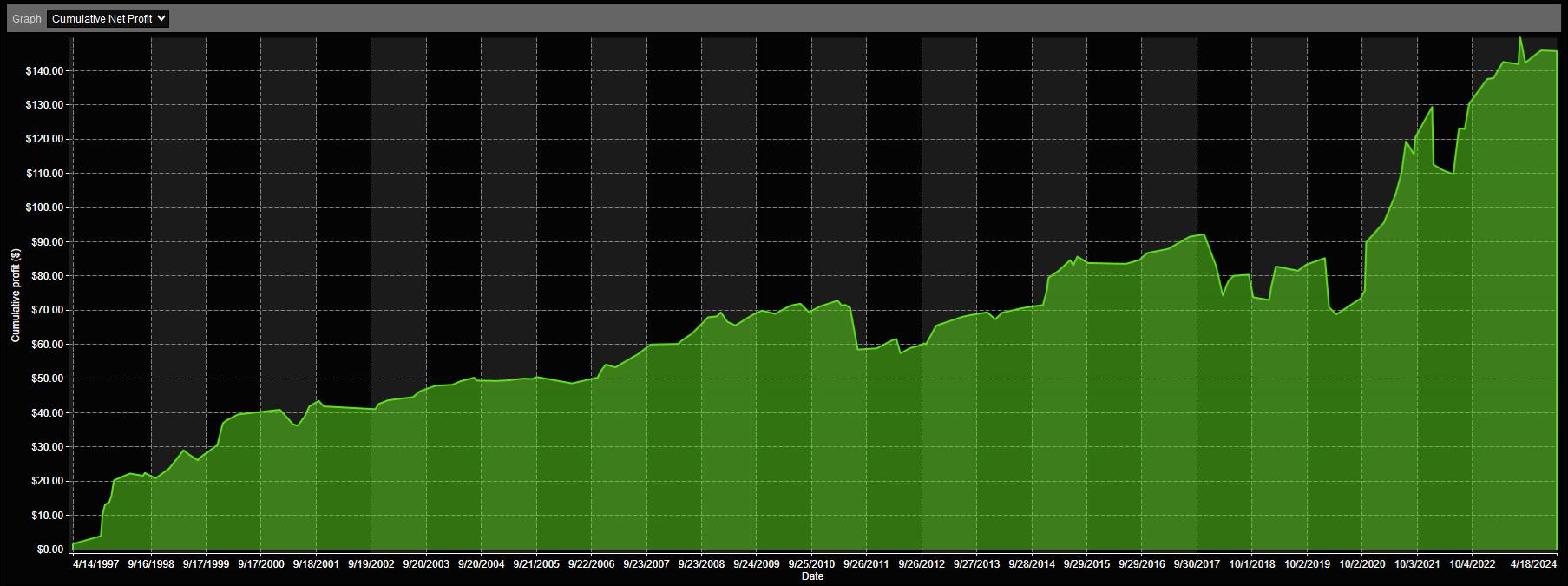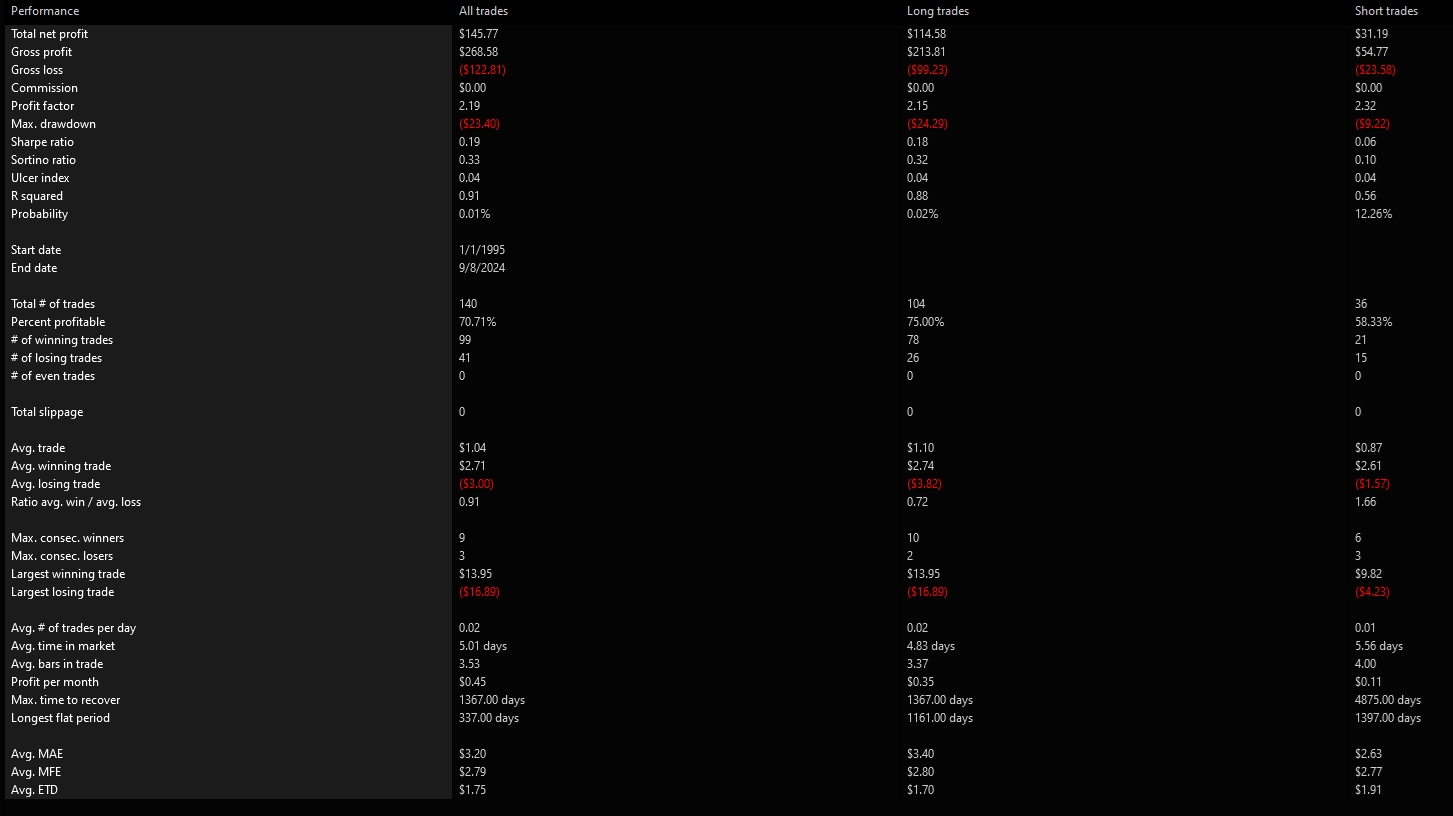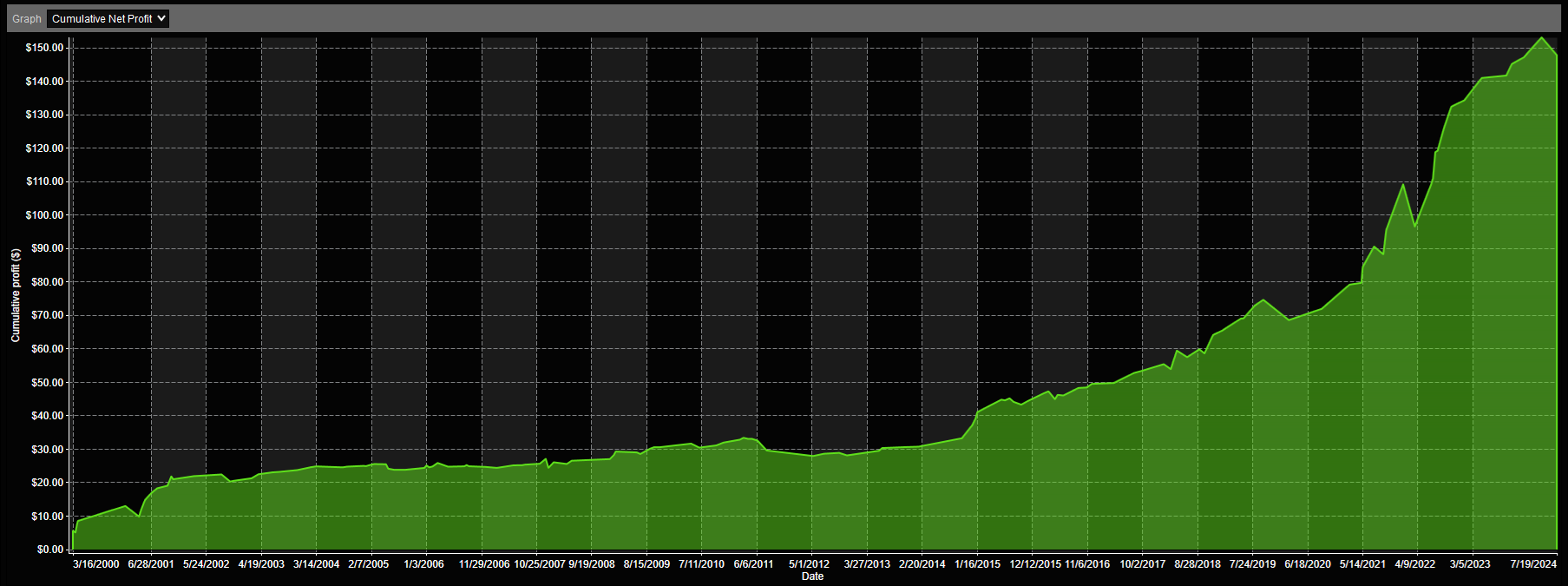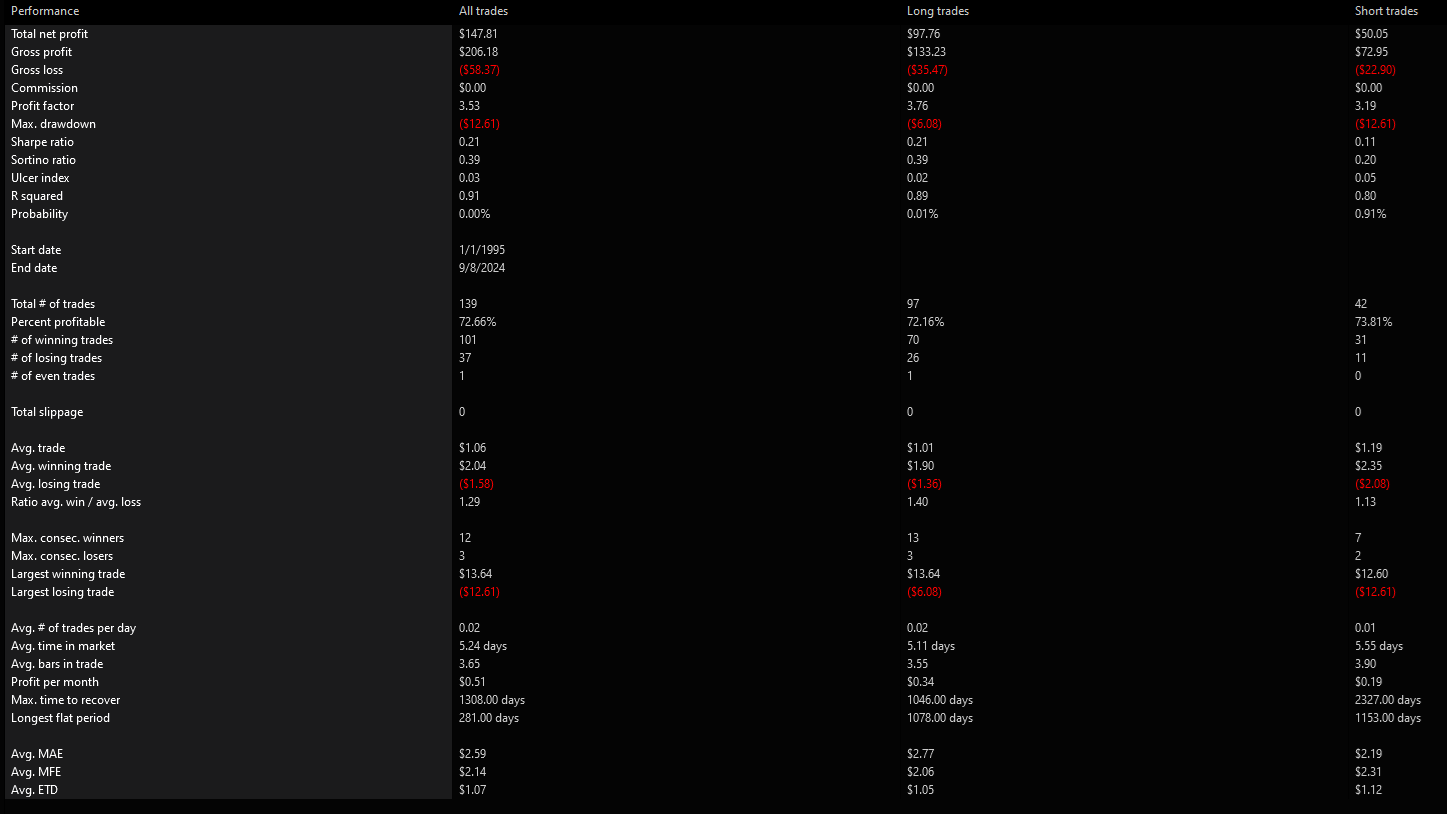| .. | ||
| backtest-results | ||
| README.md | ||
| TwoPeriodRSI.cs | ||
2-Period RSI
This strategy was taken from chapter 9 of Short Term Trading Strategies That Work (2008) by Larry Connors.
Rules
The original long-only rules from the book:
- The asset (e.g., SPY) is above its 200-day moving average.
- The 2-period RSI closes below 5.
- Enter a long position at the close (or the following open in this case).
- Exit the position when the asset closes above its 5-period moving average.
For taking short positions, invert the above conditions and use a 2-period RSI reading of > 95 as the entry threshold.
Parameters
RSI Period: The period to use in the RSI calculation. (Default: 2)
RSI Smoothing: The smoothing period to use in the RSI calculation (Default: 1)
Long Entry Threshold: The RSI value below which to allow entering a long position. (Default: 5)
Short Entry Threshold: The RSI value above which to allow entering a short position. (Default: 95)
Long-Term Trend Period: The period to use for the simple moving average used to define the long term trend. (Default: 200)
Short-Term Trend Period: The period to use for the simple moving average used to define the short term trend. (Default: 5)
Use Fixed Position Sizing: Whether to use the same position size for every trade in order to neutralize the effect of lower historical prices. (Default: false)
Fixed Position Size: The size of the position when using fixed position sizing. (Default: 10000)
Long Only: Whether to only allow long trades as in the original strategy definition. (Default: false)



